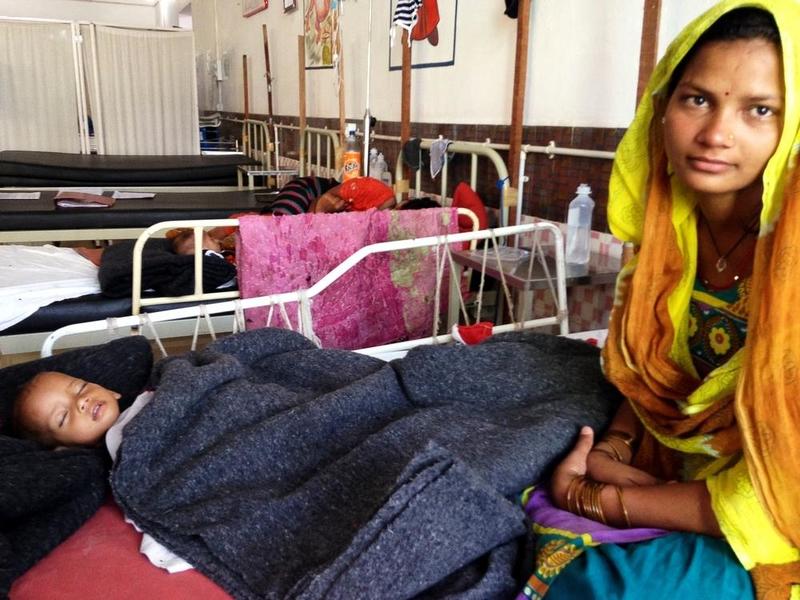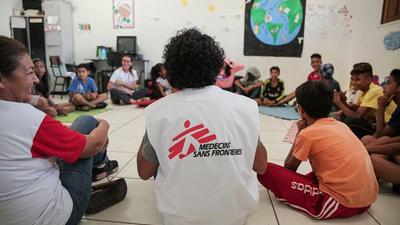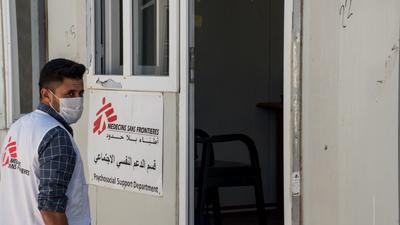In India, a single mother is worth nothing. She is challenged, questioned and criticised. Each step she takes is carefully observed. She is whispered about behind her back, every day.
When Anisha Khatoon was married at 14 to a man from her village who she met on her wedding day, she thought that it would be for her whole life.
Her hands and feet were painted with beautiful henna drawings, essential oils were spread over her body and she was dressed in a beautiful red sari, a symbol of fertility. For several days they danced and celebrated the union along with her family and friends.
Right away, and as was expected of her, she became pregnant. Everything seemed to be going well. Her belly grew, she was happy, they had plans… until her husband went off to work in Delhi and never returned.
Anisha has heard rumours that he is living in the capital of India with his lover. Abandoned and depressed, she returned to her parents' home. There, she gave birth to her daughter, Najina, who is now a year-and-a-half old and weighs less than five kilos.

For this reason, both are in the Malnutrition Intensive Care Unit (MICU), which opened in March 2014 to treat the more complicated cases of severe acute malnutrition in children aged between six months and five years.
The unit is integrated within the Darbhanga Medical College Hospital, a district in Bihar state, in the North of India, close to the border with Nepal, and is managed by Médecins Sans Frontières/Doctors Without Borders (MSF) and supported by the Ministry of Health staff from the hospital.
Anisha tells me that she and her daughter Najina arrived today. They were sent from the stabilisation centre that MSF has in Biraul. One of the nurses told me that Najina’s condition is serious, that the prognosis is not good.
"It is estimated that in India there are 8.1 million children under the age of five with severe acute malnutrition."
"My parents are the ones who have taken responsibility for us. I have never had milk to feed my baby, that’s why I have given her crushed rice and vegetables. She has always had something to eat. Here, the nurses give her milk and a nutritious paste," says Anisha.
The reality is that Najina is hungry and malnourished, with an acute malnutrition that could cost her life. But it might become chronic and she’ll be able to live with it, along with all the delays in cognitive development and growth that this situation is likely to result in.
Hunger, here in India, is like this. It doesn’t cause the rates of mortality we see in many parts of Africa, but it still kills. Children get "accustomed" to surviving with that rumbling in their bellies, with that fragility, that chronic fatigue and weakness.
They usually have something to put in their mouths, little though it may be, and so they "survive". Another thing is the delays they can suffer in their development, physical or mental, or the consequences this can have on their long-term health.
"Parents look at their children and if they see that they are thin, they don't worry too much. All children are thin, they think. They don't understand the causes of malnutrition or that, for example, the fact of not thoroughly washing things can transmit certain diseases or cause an infection," says Dr Attik Khan, who has worked in the MICU since its inauguration.
Najina is very thin. She is very small, measuring 69 cm and is now sleeping in bed. Her mother is sitting by her side, barefoot. She looks at her daughter and cries. She covers her face with her hands and covers her head with her yellow sari.
"Her father has never come to see her. She doesn't know him. I don't know why he left, but everyone blames me for the fact he’s gone. But I did not do anything wrong.
"When the baby is awake she doesn't stop crying. It irritates me. I can't cope anymore. I am very tired," says Anisha.
"I don't want to have more children, but I hope that she gets better. If she survives I would like her to study and have a good future; I couldn’t go to school."
It is estimated that in India there are 8.1 million children under the age of five with severe acute malnutrition.
Since 2009, MSF has been treating children in these conditions in the district of Darbhanga, to the north of Bihar. Bihar is the third most populous state in India and almost 50 percent of its children are below their optimum weight.
Half of its children.





